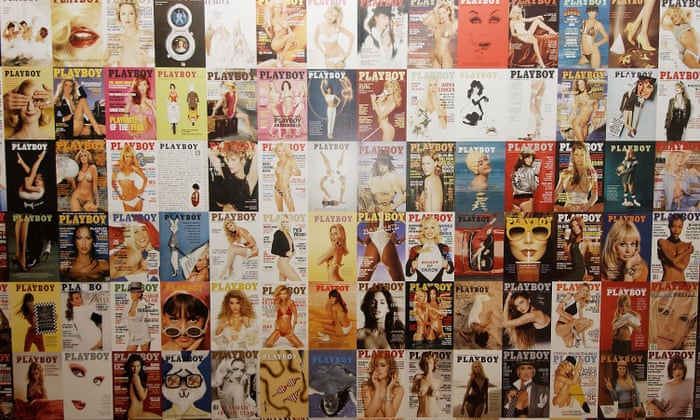There are two ways of looking at this. The first is to situate the roots of Britain’s entertainment boom far in the past; in the Industrial Revolution and the colonisation of North America, India and parts of Africa. Yet Bagehot spies a more recent turning point: Britons successfully export their films, music and books to the world not thanks to the empire per se, but to the nature of its decline and their subsequent reaction.
Thursday, October 29, 2015
How Britain turned the ruins of its empire into a mighty entertainment imperium
http://www.economist.com/news/britain/21677221-how-britain-turned-ruins-its-empire-mighty-entertainment-imperium-spectre

There are two ways of looking at this. The first is to situate the roots of Britain’s entertainment boom far in the past; in the Industrial Revolution and the colonisation of North America, India and parts of Africa. Yet Bagehot spies a more recent turning point: Britons successfully export their films, music and books to the world not thanks to the empire per se, but to the nature of its decline and their subsequent reaction.
There are two ways of looking at this. The first is to situate the roots of Britain’s entertainment boom far in the past; in the Industrial Revolution and the colonisation of North America, India and parts of Africa. Yet Bagehot spies a more recent turning point: Britons successfully export their films, music and books to the world not thanks to the empire per se, but to the nature of its decline and their subsequent reaction.
Monday, October 26, 2015
Russia's War: Fridge vs. TV
http://www.themoscowtimes.com/opinion/article/russia-s-war-fridge-vs-tv/540319.html
As we know, television is winning. Even the young woman giving the weather forecast on Russian television talks about Syria. The Russian consumer forgets that he hasn't eaten yet; his stomach fills with pride at Russia's bombing campaign, which is a substitute for missing food imports.
Angus Deaton, the British economist who was awarded this year's Nobel Prize in Economics advanced the idea that happiness is an important factor in economics. That fits with the current state of Russia: As long as one can find happiness on the television screen, one can get by with decreasing amounts of food.
Friday, October 23, 2015
Businesses are coming up with ever-sillier ways to identify themselves
http://www.economist.com/news/business/21676804-businesses-are-coming-up-ever-sillier-ways-identify-themselves-nine-billion-company

The tech boom gave the naming industry a boost by introducing a new stream of tech-words: Google got its name from the mathematical term for ten to the power of 100 (a googol) and Tesla from a unit for measuring the density of a magnetic flux. But it is also responsible for a lot of tripe. Too many tech companies are either tediously wacky (Yahoo) or overly familiar (PayPal). Tech firms are as plagued by naming-imitation as by product-imitation: witness the fashion for incorporating “Buzz” in your name (after BuzzFeed) or the “-ify” suffix (after Spotify).
The tech boom gave the naming industry a boost by introducing a new stream of tech-words: Google got its name from the mathematical term for ten to the power of 100 (a googol) and Tesla from a unit for measuring the density of a magnetic flux. But it is also responsible for a lot of tripe. Too many tech companies are either tediously wacky (Yahoo) or overly familiar (PayPal). Tech firms are as plagued by naming-imitation as by product-imitation: witness the fashion for incorporating “Buzz” in your name (after BuzzFeed) or the “-ify” suffix (after Spotify).
Saturday, October 17, 2015
John Lewis: trouble in store
http://www.ft.com/intl/cms/s/2/92c95704-6c6d-11e5-8171-ba1968cf791a.html#slide0
 ©Benjamin McMahon
©Benjamin McMahon
The furniture department at the Oxford Street store
John Lewis still has enormous advantages. It can draw deeply on the respect and loyalty it has built up over 151 years. And for all the grumbles, the partners, as surveys show, still generally provide top-quality service. The question, in a mobile and screen-crazy world, is whether that will be enough to sustain Spedan Lewis’s remarkable democratic experiment.
God’s TV, Russian style
http://www.ft.com/intl/cms/s/0/27125702-71ec-11e5-ad6d-f4ed76f0900a.html?siteedition=uk
 ©Petr Antonov
©Petr Antonov
Inside Tsargrad TV’s studios, dominated by a cathedral cupola
Thursday, October 15, 2015
Monday, October 12, 2015
Saturday, October 10, 2015
Women & Hollywood
http://www.ft.com/cms/s/2/bdfb8bb8-6da3-11e5-8171-ba1968cf791a.html
 ©Getty/Alamy/Allstar/Mirrorpix
©Getty/Alamy/Allstar/Mirrorpix
Impressive female-led narratives do exist, of course — at the London Film Festival this week, Carol, Brooklyn, Room and the German feature Victoriawere among them, as well as Suffragette. The real problem, as ever, remains in the multiplex, where genre (which is what sells, along with superheroes and sequels) tends to keep women in their allotted place as someone to tidy up and kiss it better.
Impressive female-led narratives do exist, of course — at the London Film Festival this week, Carol, Brooklyn, Room and the German feature Victoriawere among them, as well as Suffragette. The real problem, as ever, remains in the multiplex, where genre (which is what sells, along with superheroes and sequels) tends to keep women in their allotted place as someone to tidy up and kiss it better.
Thursday, October 8, 2015
The genius of The Great British Bake Off
http://www.theguardian.com/tv-and-radio/2015/oct/06/genius-of-great-british-bake-off

Bake Off has its own versions in (clockwise from top left) Germany, Turkey, France and Italy.

In France, Le Meilleur Pâtissier (The Best Pastrychef) seems a slight oddity, given that France’s baking tradition is professional rather than domestic. (I have watched contestants perform the most peculiar challenge of baking “un cupcake géant” – since cupcakes are miniature cakes, it seemed to me that the contestants were, in fact, merely baking cakes.) Bake Off Italia is flirty and dramatic, set in beautiful formal gardens. The Scandinavians are keen on the format. They seem to favour lurid decoration (I watched a Danish chap on The Great Bake Fight produce an electric guitar formed of a blue-iced cake, presented in a guitar case). For The American Baking Competition, which also had Paul as a judge, there were Route 66 signs on the tent wall, and fist-pumping.
There is Bake Off in Turkey and Brazil, and in Thailand and Romania and Ukraine. What is most remarkable about these overseas versions is how they merge, chameleon-like, into their host cultures. Those apparently indelible signifiers of Britishness turn out, after all, to be evanescent. When I asked a Swedish friend what the tent, pastel kitchen units, and perky crockery displays in All of Sweden is Baking brought to mind, she replied, immediately: “Ikea and summer weekend cabins.” Phillips has not even lost hope of selling the format to China, which has no tradition of covered ovens, let alone baking – despite the fact that one broadcaster has turned her down on the grounds that Chinese audiences won’t watch a television programme “that makes you fat”.
Subscribe to:
Comments (Atom)
